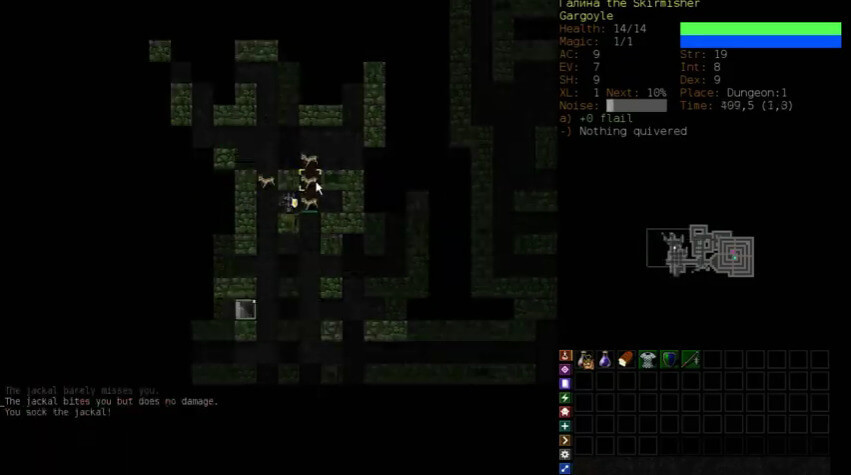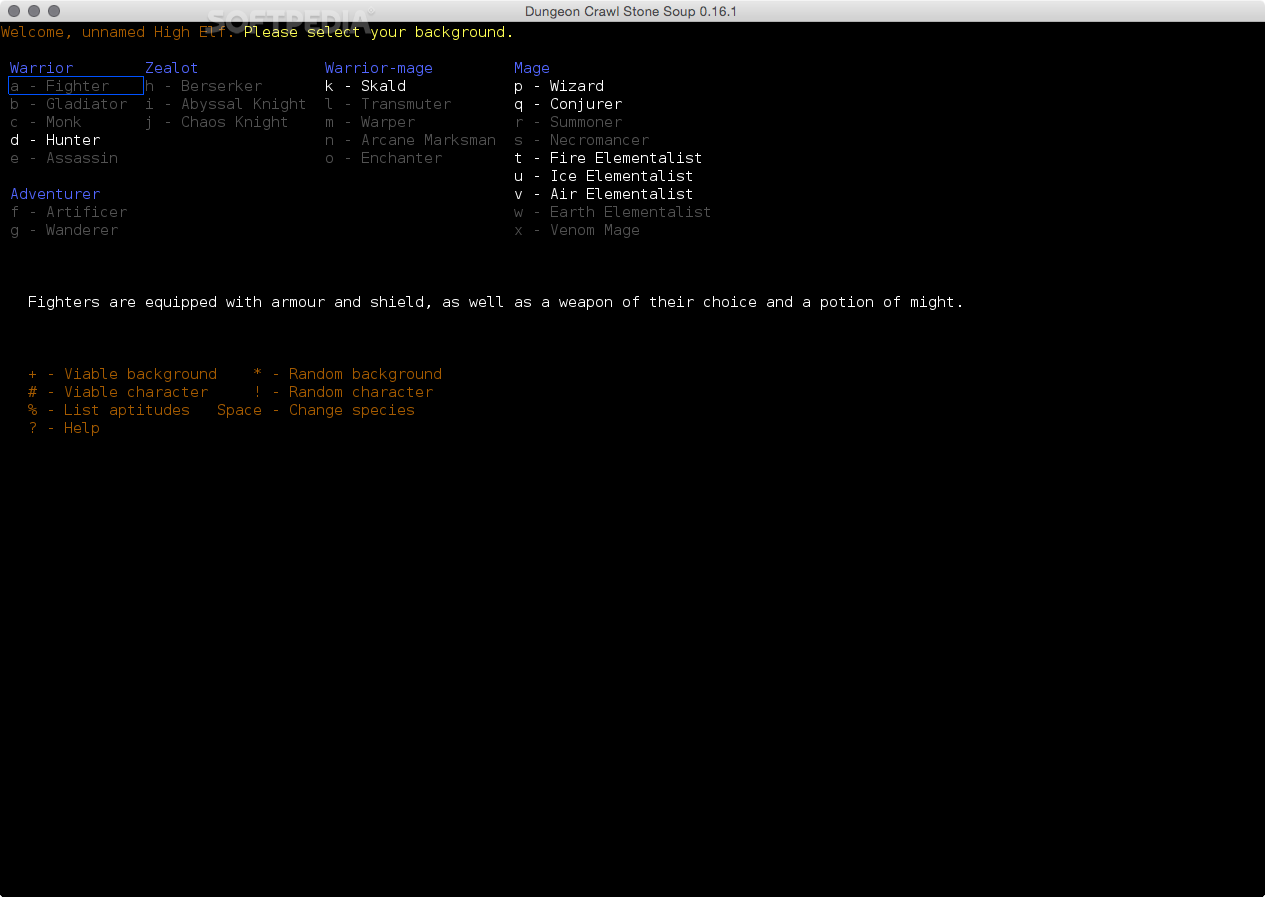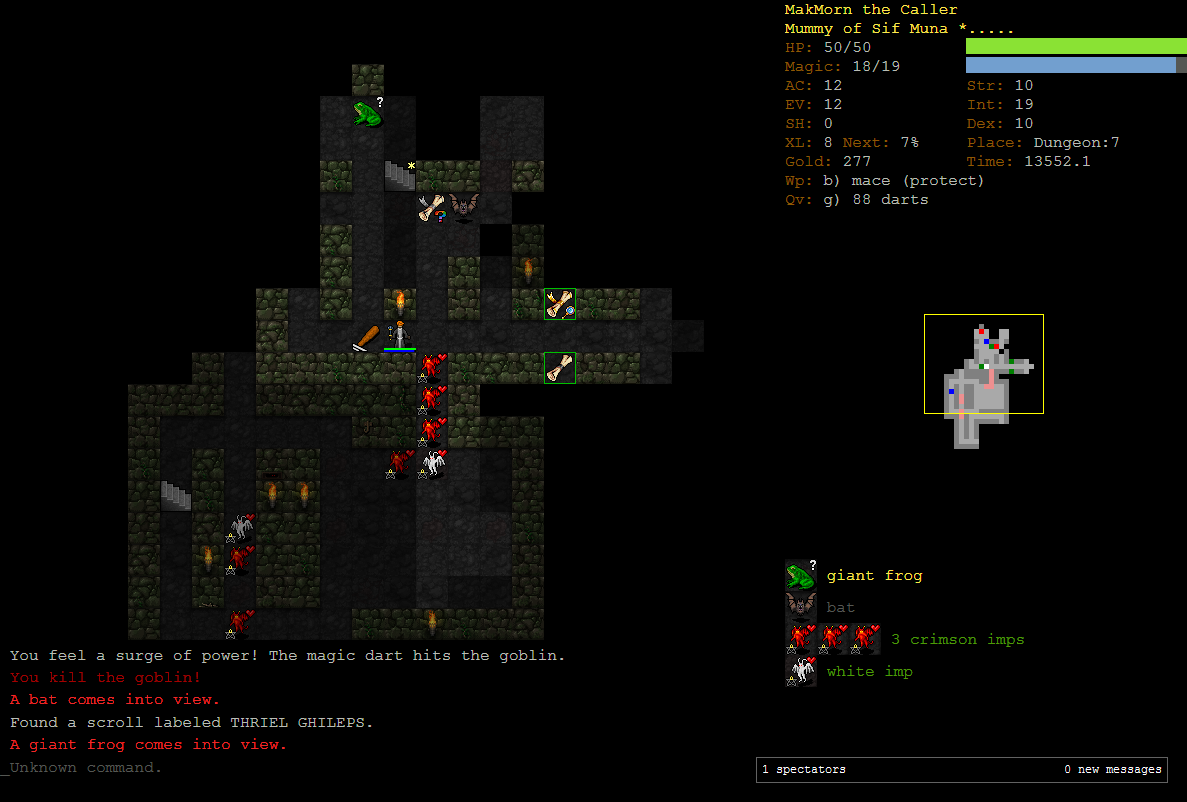

The choice of the deity significantly impacts gameplay. A few backgrounds even start the game already worshipping a specific god. The player can choose to worship one of the gods once the appropriate altar is found. The game also offers a pantheon of 26 gods.

The background choice determines the starting skills and equipment, with 25 choices as of 0.29 such as fighters, necromancers, and berserkers unlike species choice, background choice only affects the start of the game – the player is not prevented from pursuing any skills and using any equipment. In the 0.29 version, 27 species are available, from those with little deviation from the common mechanics such as humans and hill orcs, to species such as mummies and octopodes which have unusual gameplay mechanics. The species choice determines the aptitudes of the character for each of the skills, which represent how much experience is needed to raise the skill to higher levels and adds species-specific abilities. The player determines which skills to increase. Character advancement is based on experience points gained by defeating monsters, which increase both an experience level and a set of skills including melee weapons, ranged weapons and magic. Randomly generated levels may contain randomly chosen manually designed fragments called "vaults", as well as portals to special manually designed mini-levels called "portal vaults" such as volcanoes and wizard's laboratories.Ĭharacters are initially defined by their species and their background.

Most levels are randomly generated to maximize variety, while the levels containing the objective items are randomly chosen between several manually-designed layouts, which usually contain random elements, and which are authored in a Crawl-specific language incorporating Lua scripting. Conversely, the developer team seeks to avoid providing incentives for repeating boring actions without consideration, or providing illusory gameplay choices where one alternative is always superior. The game has an explicit design philosophy intended to provide interesting strategic and tactical choices within a balanced game to offer replayability based on random dungeon generation to make the game accessible and enjoyable without deep knowledge of its internal mechanics and to present a friendly user interface that can optionally automate several tasks like exploration and searching for previously seen items. To enter the Realm of Zot where the Orb is located, the player must first obtain at least three "runes of Zot" of the 15 available these are located at the ends of diverse dungeon branches such as the Spider Nest, Tomb, and Slime Pits.
#BEATING DUNGEON CRAWL STONE SOUP FULL#
"Stone Soup" refers to the European folk story in which hungry strangers convince the people of a town to each share a small amount of their food in order to make a meal that everyone enjoys.ĭungeon Crawl Stone Soup is a roguelike game where the player creates a character and guides it through a dungeon, mostly consisting of persistent levels, full of monsters and items, with the goal of retrieving the "Orb of Zot" (a MacGuffin) located there, and escaping alive. The latest release is version 0.29 ( 0.29), released on August 25, 2022. The game is released under the GNU GPL-2.0-or-later. ĭungeon Crawl Stone Soup polled first in a 2008 poll of 371 roguelike players, and later polled second in 2009 (behind DoomRL) and 2010 (behind ToME 4), and third in 2011 (behind ToME 4 and Dungeons of Dredmor). It has been identified as one of the "major roguelikes" by John Harris.

#BEATING DUNGEON CRAWL STONE SOUP FREE#
Dungeon Crawl Stone Soup ( DCSS) is a free and open source roguelike computer game and the community-developed successor to the 1997 roguelike game Linley's Dungeon Crawl, originally programmed by Linley Henzell.


 0 kommentar(er)
0 kommentar(er)
